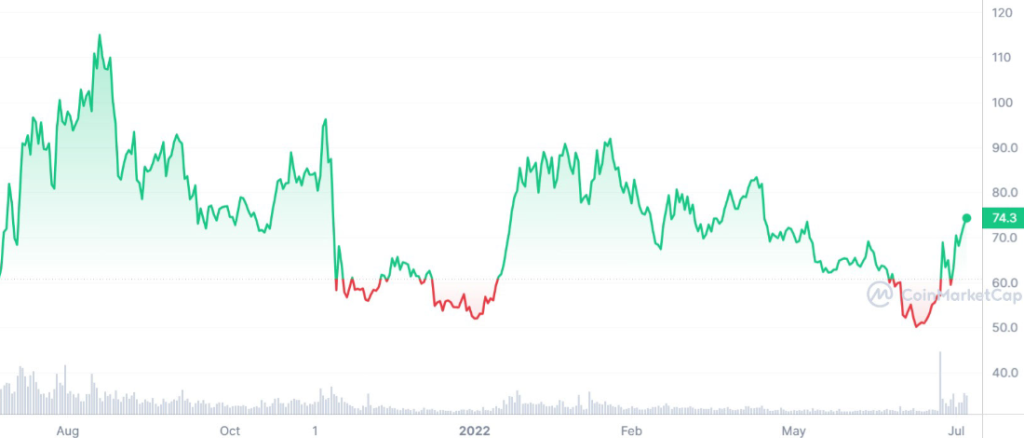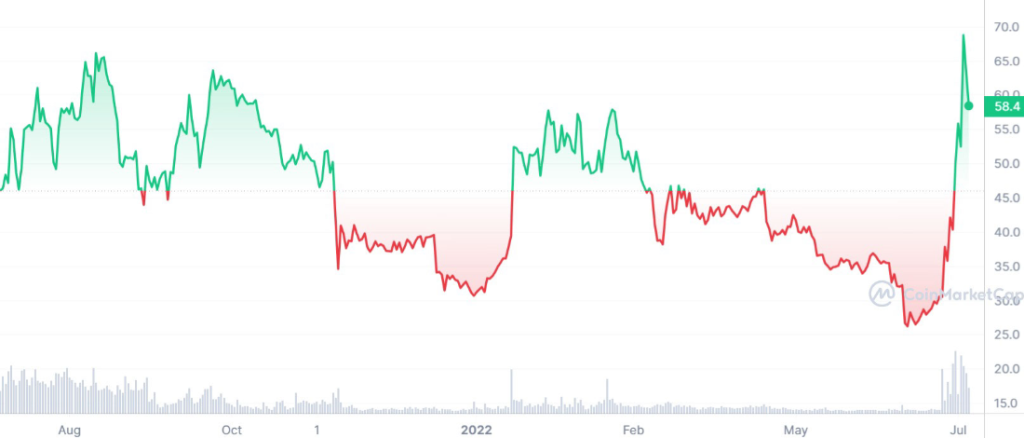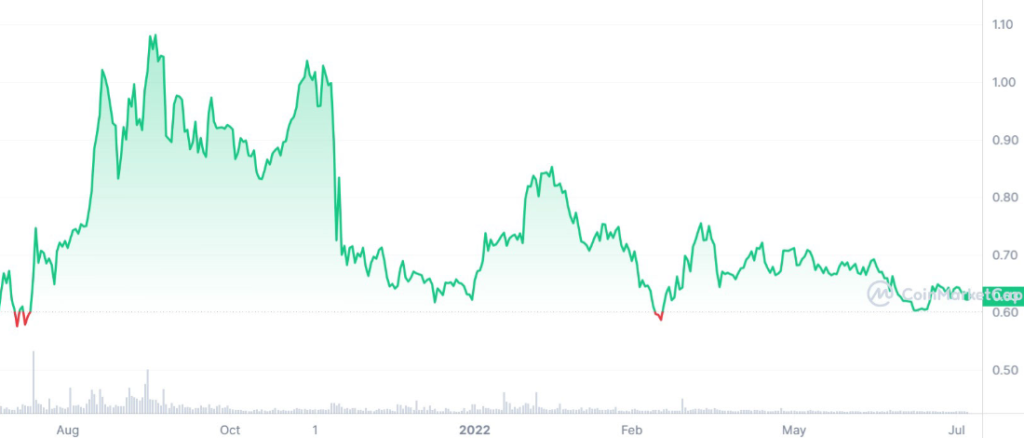The crypto world has been undergoing some challenges recently. As the price of bitcoin and other cryptocurrencies have fallen, the risk in some business models in the space has been exposed. Some high-profile events such as well-known stable coins “breaking the buck”, to use a money market term, and a few much talked about bankruptcies like that of Celsius have investors in the space asking some hard questions. Foremost among them is “Is crypto safe?”
Before asking or answering that question, though, there are two things that must be understood.
“Safe” Investments
First, there is no such thing as a “safe” investment. Investing involves risk, and the return you get on an investment is the reward you get for taking that risk on board. Even the generally accepted safe investment in the financial world, U.S. Treasuries, have some risk. They are considered safe because they are backed by the “full faith and credit of the U.S. government” and are therefore used as the “risk-free asset” in many discounted value calculations. However, as anyone who is aware of the size of the national debt or who has witnessed the periodic political fights over the debt ceiling knows, while the risk of the U.S. government defaulting on their debt is extremely small, it still exists.
Second, risk, and therefore safety, are not absolutes; they are relative terms. As a rule of thumb, the greater the potential reward, the greater the potential risk, as Celsius investors tempted by 18+% returns on crypto deposits now know all too well. When trading or investing, given that you cannot avoid risk altogether, you are looking for ways to mitigate and control it.
So, the question investors should be asking is not “is crypto safe?” but rather “what are the safer options in the crypto space?” With that in mind, those looking to potentially benefit from the potential of crypto and decentralized finance without a massive risk to their capital may want to consider these three companies.
AAVE

If you are looking for a decentralized finance solution that can help you earn rewards without trading your favorite digital assets, then AAVE is the product for you. AAVE is a popular enterprise-level open-source blockchain-based decentralized finance (DeFi) platform that offers a host of benefits to its users.
Unlike traditional banks, AAVE specializes in overcollateralized loans, where users deposit crypto worth more than the amount they wish to borrow, thereby reducing the risk of loss. Additionally, AAVE offers flash loans and liquidity pools, which allow users to borrow and lend cryptocurrency in a trustless manner.
What sets AAVE apart from its competitors in the market is its non-custodial system, which means users have control over their digital assets at all times. With AAVE, you can gain exposure to different cryptocurrencies without actually owning them outright. Overall, AAVE’s features and benefits make it an attractive choice for anyone who wants to take advantage of the many opportunities available in the world of DeFi.
Compound

This decentralized protocol allows borrowers to take out loans and lenders to provide loans by locking their crypto assets into the platform. Unlike traditional banks, Compound offers a fully autonomous and secure way to participate in decentralized finance (DeFi) without the hassle of mandatory Know-Your-Customer (KYC) loops.
One unique feature of Compound is their native COMP token, which allows users to have a say in the protocol’s governance and rewards them for their participation in the platform. With multiple supported tokens to lend and borrow, users can earn interest on their crypto assets, all while having the opportunity to earn COMP tokens.
No wonder Compound is quickly becoming a popular choice in the DeFi space.
Nexo

Nexo seems like a more typical crypto lender. They offer quite high interest on bitcoin and other crypto deposits and lend primarily within the crypto community.
They are therefore more of a pure, “traditional” crypto lender and offer some degree of safety by demanding over-collateralization from borrowers, and by taking out insurance on collateralized assets. They have also partnered with Armanino LLP to provide real-time auditing of the company’s custodial holdings, which should give depositors and investors some peace of mind. Despite their recent legal issues, they remain one of the most trustworthy companies of this type.
Final Thoughts
These three examples take different approaches to safety in crypto. AAVE and Compound represent decentralized finance. Nexo, on the other hand, is more of a centralized finance organisation that takes steps to guard against that volatility.
Whichever way you prefer, though, while there is no “safe” investment in crypto, just as there is not in any other financial market, there are “safer” options, and these two companies are good starting points for those looking for them.
Author Profile

- Lucy Walker covers finance, health and beauty since 2014. She has been writing for various online publications.
Latest entries
- April 25, 2025Global EconomicsWhistleblowers Unmask Schwab’s Toxic WEF Secrets
- April 9, 2025Global EconomicsTariff Tensions Drive Market Volatility
- March 18, 2025Global EconomicsRed in Name Only: Labour’s War on the UK Working Class
- March 7, 2025SatoshiCraig Wright Banned from UK Courts with Civil Restraint Order




